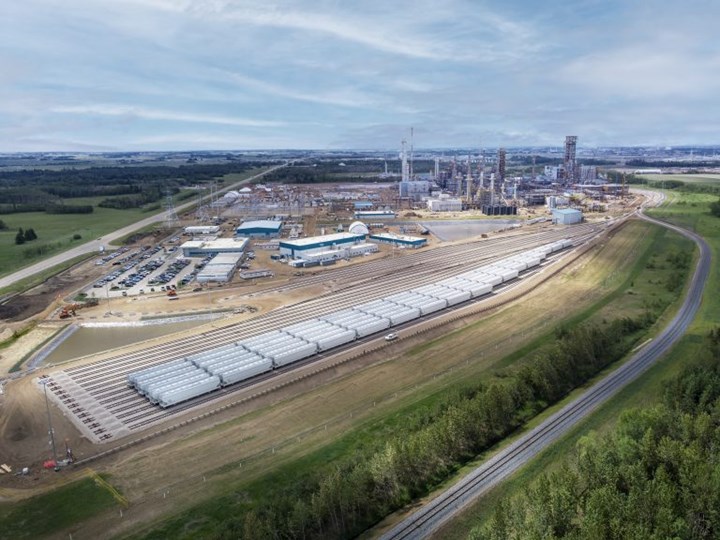North America’s First Integrated PDH/PP Plant
Canada’s Heartland Polymers is producing homopolymer PP with random copolymers slated for 2023.

is now offering a segment of its portfolio of PP products manufactured at North America’s first integrated propane dehydrogenation (PDH) and PP production facility, located near Edmonton, Alberta, in Western Canada. This strategic location is less prone to weather-related service disruptions than other plants. Moreover, the Heartland Petrochemical Complex (HPC) is connected to an extensive network of rail and storage facilities, ensuring reliable delivery of product to customers across North America and around the globe.
Once commercial production is fully underway by end of third quarter, Heartland is expected to produce nearly 1.158 billion lb/yr of PP, filling approximately 18 rail cars per day, seven days a week. Heartland Polymers is initially producing homopolymer PP resins for extrusion thermoforming, extrusion blow molding, film, fiber, and molding grades for packaging, caps/closures, and consumer housewares.Plans to add random copolymers in 2023 are also underway.
HPC has been designed with sustainability built into every aspect of its operations to create one of the most sustainably produced PP resin in the world. The company’s approach to production will produce 65% lower greenhouse gas emissions compared to the global average among industry peers – according to an independent third-party analysis commissioned by parent company, Inter Pipeline.

The complex’s quality control lab was designed and optimized to ensure that every aspect of production meets and exceeds the high standards of the company’s supply chain partners and its PP customers. Heartland’s intensive quality control program reportedly leverages leading technologies and best practices to provide the competitive edge the company’s supply chain demands.
HPC is connected via rail to a vast network of storage facilities and international ports across North America. Its location is not as susceptible to extreme weather events, such as hurricanes, that can significantly disrupt shipping. The company uses state-of-the-art GPS to track all shipment activity and a blockchain approach to create transparency across the entire supply chain.
Related Content
-
Fundamentals of Polyethylene – Part 3: Field Failures
Polyethylene parts can fail when an inappropriate density is selected. Let’s look at some examples and examine what happened and why.
-
Prices of PE, PP, PS, PVC Drop
Generally, a bottoming-out appears to be the projected pricing trajectory.
-
Prices for All Volume Resins Head Down at End of 2023
Flat-to-downward trajectory for at least this month.






